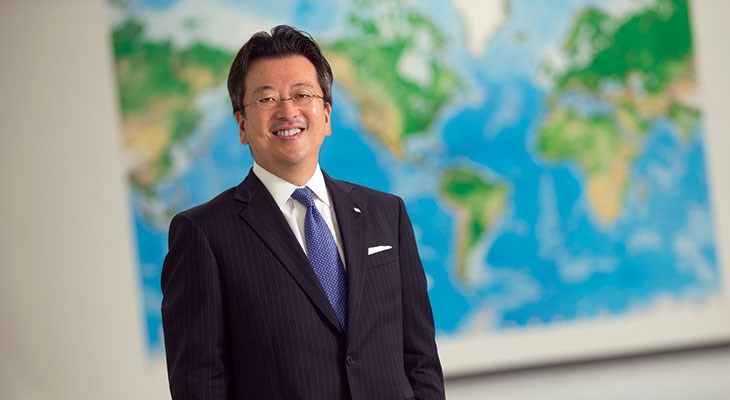When Hiroyuki Fujita reached a deal in October to sell 70 percent of the ownership in Quality Electrodynamics LLC to Tokyo-based Canon Inc., he got a little emotional.
He founded the diagnostic imaging company in 2006 and built it into a leading developer of radio frequency coils, an essential component in magnetic resonance imaging equipment.
“QED is my baby, so there is a personal attachment to it,” says Fujita, the company’s president and CEO. “That is important. But it’s not the most important thing when you talk about a business where you have 180-plus associates and their families that depend upon me.”
While QED is now a consolidated subsidiary of Canon, it has retained its name, independent identity and location in Mayfield Village. Canon has identified the medical sector as a new business opportunity that could facilitate expansion and drive future growth, and the acquisition of QED is intended to further the $36 billion company’s strategy.
“By combining our innovation with Canon’s technology and resources, we will be even stronger,” Fujita says. “We are no longer just an independent company. We have an opportunity to be part of Canon’s global network.”
In this Dealmakers feature, we spoke with Fujita about how the deal with Canon got done.
Protect your future
Fujita earned a doctorate in physics at Case Western Reserve University and created QED to revolutionize medical imaging through advanced technical innovation in clinical diagnostic equipment.
“We are in this health care industry where things are changing so quickly because of advanced technologies,” Fujita says. “You think that you are doing great and you are working so hard, but if you are outside that ecosystem, nobody cares about you.”
The Canon deal provides an opportunity to bolster QED’s standing in that ecosystem. Negotiating the transaction took quite a bit of conversation, exploratory research and due diligence, Fujita says.
“Our customers are all competing with each other,” Fujita says “So it's a very delicate balance, because in order for us to develop a product, it does take some time. We have to be informed about our customers’ vision as to where they want to take their next-generation MRI scanners. That is confidential information, so you don’t want this information to be given to your competitors. Even if we get a request from one customer or another customer for M&A, it’s not easy to say, ‘OK, let’s do it.’ You truly have to evaluate what this means to your business in the long run.”
Canon emerged as a strong candidate to make a deal, but Fujita was determined to evaluate the transaction from every angle, looking primarily at the impact it would have on QED’s culture.
“What we are doing is not just negotiations, but building trust,” he says. “You will know how I approach a subject, and I will know how you are going to address a subject. It’s not just a five-minute conversation. I may visit their factories, and I may meet with their executives. If I’m not convinced that they are going to be the same kind of people we want to be with, it’s not going to happen. The culture and values are the most important thing.”
Make an informed decision
CEOs and business owners need to be aware of what’s happening in their industries, whether they are pursuing a deal or not.
“There are so many things happening, and opportunities are taking place every day,” Fujita says. “It is your job to decide what it means to your business and whether you should take that opportunity to strengthen, grow or increase market share. It’s important to have all the information you need so that your decision will not be one dimensional.”
As Fujita considered his options, he ultimately determined that Canon presented the best opportunity for his business and his team.
“At the end of the day, my job is to decide,” Fujita says. “If I don’t make decisions in a timely manner, I may lose the opportunity. As I exchanged my opinions and feelings with all these executives and the chairman of Canon, I felt very comfortable with this decision. Now it’s up to us.”




